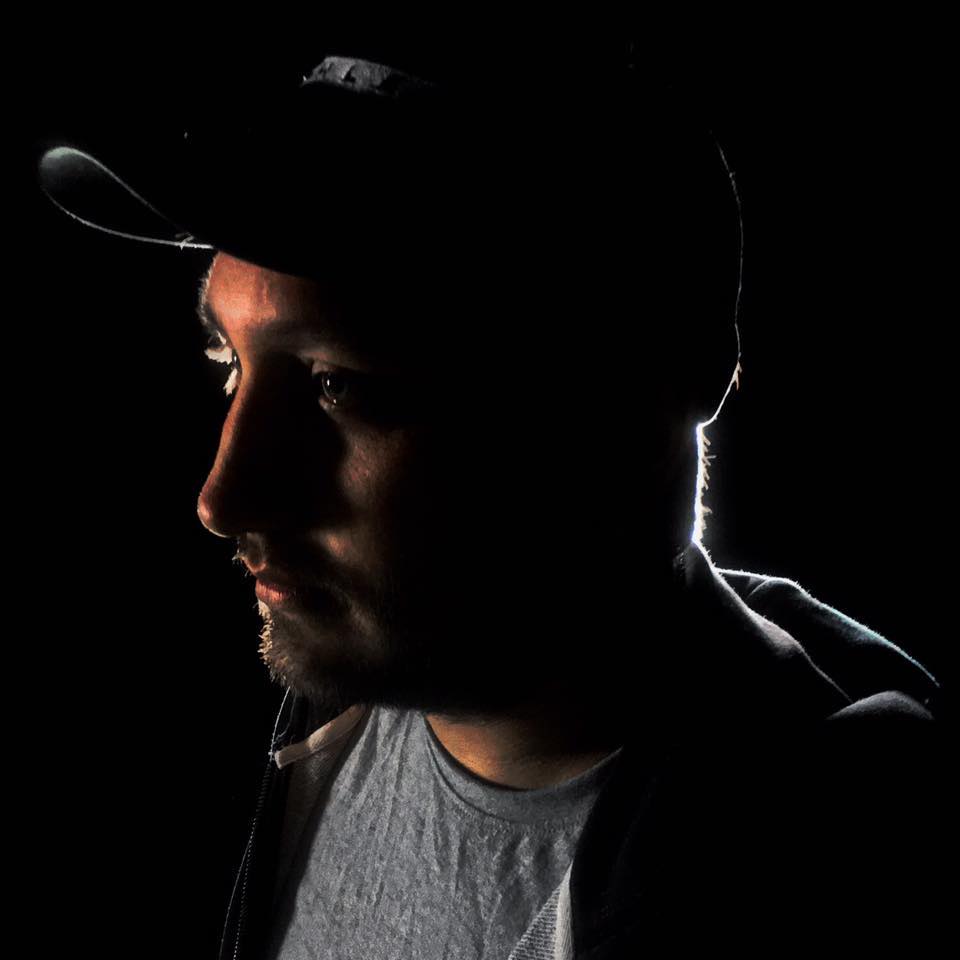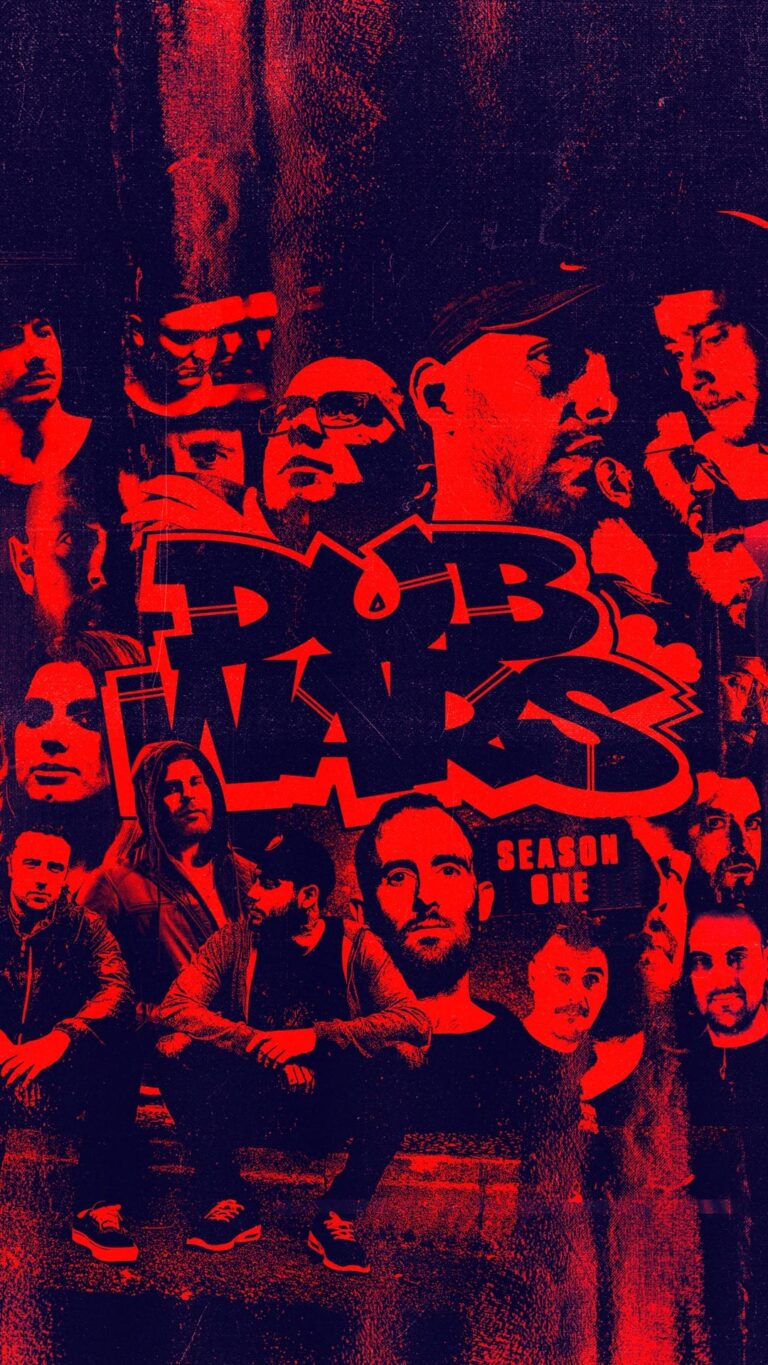Toronto is Broken (AKA Christian Hoffmann) is breaking the new year in with his third album, Clare – a dancefloor drum and bass album that is infused and absorbed by metal and rock influences. The Leicester-based DJ and producer has spent the best part of a decade experimenting with everything from breakbeat to jump up but has now found his musical home under the roof of organic metal-inspired dancefloor.
This 15-track body of work was curated throughout 2020 between working as a teacher, running his own label YANA Music, and studying for a university degree. Between all of this, he relearnt what it meant to be a producer, discovering new ways of blurring the lines between the two paradoxical worlds of rock and bass music. With his two previous albums released on Sub Slayers and Viper Recordings, Clare completes the trilogy on YANA – a self-released project to round off 10 years of musical exploration and narration.
We spoke to Christian about his journey to creating this hybrid album and the future of metal in drum and bass.
To start off, how have you been? It must be tough juggling a 9-5 job as well as your music and label!
I work as a teacher and I’m still teaching five or six hours a day online, so my life consists of sitting at my desk all day, especially with the album coming out and the amount of stuff I have to do of an evening because I’m doing it all myself. I’m also going to university, so I have uni deadlines! I’m doing my third dissertation and then running my label. The benefit of the first lockdown was that I was able to spend tonnes of time and make loads of headway with music. I was still working during the first lockdown but I was only expected to teach for about an hour and a half a day, but when I went back to work in September I’m working five or six hours a day teaching online. It was great because the label took loads of momentum because I had the time to spend on it, but then I had to go back to work and my third year of uni started as well, so I knew it was going to be mayhem.
Your third album Clare is out now and is described as the third part of a trilogy of albums, all of which are quite different. Clare is bringing us the sound of metal and rock infused dancefloor – tell us about that!
My original background in music has always been rock and metal and I didn’t have any interest in electronic music until I discovered Enter Shikari. I discovered drum and bass and, for a long time, that was the only thing that mattered really, so I lost touch with a lot of the stuff I used to listen to. Then I rediscovered it a few years ago and got back into it. I always played guitar, but the guitar I had was old and rubbish, so I never really used it to record with. My house got flooded at the end of 2019, so with the insurance money I decided that I was going to invest in a decent seven string guitar, because I had always wanted to. That’s where it evolved from.
The tracks from the three albums are all very different. I think they all sound like me, but they lacked a certain kind of identity. My influences changed all the time and I originally came from making breakbeat, so the first album has a lot of that on there. Then, when I signed to Viper, that is when I honed in on doing solely drum and bass, but it was still never anything very special. This new style came so natural to me when writing and it was a lot more fun. Even though I have been releasing music as Toronto is Broken since around 2011, I feel like I have finally worked out what my sound is. Merging rock and drum and bass is nothing new – Pendulum have done it for years, MUZZ does it, and people like The Qemists and Zardonic as well, but a lot of it, although it’s not bad, just feels like drum and bass with guitars on it. With this album, I wanted to make a point where, especially on tracks like Paragons, Gunfingers and Freefall, it is literally 50/50 drum and bass and metal.
It sounds like it was quite a transformative period for you as an artist as you tried to find your ‘sound’?
Yeah. I want to market it to the metal crowd as well, so I’m not just speaking to the drum and bass crowd and that has worked out as well. For example, there have been reaction videos on YouTube from metal fans and I discovered that there is a massive metal community on YouTube who react to the latest releases. I feel that during the lockdown I was able to have more time to write this music – it’s the quickest album I’ve ever written as it took almost a year to be finished from me starting the first track to sending it off to be mastered.
Also, the lack of gigs has actually helped as I was making this transition. I think if I tested a tune like Paragons out of nowhere in the middle of the set, people would be like, ‘what the hell is this?’ and I might have got booed off the stage because nobody would expect it! With no shows, I’ve been showing people as the singles have been coming out so people can digest it themselves. I had to be quite tactical in how I approached it.
Did the reason behind the album change throughout the process of creating it?
Yeah. The oldest tracks on there are probably Clairvoyant and The Moment, and at the point of making these early tracks I just started to think about an album and imagined a typical Toronto is Broken drum and bass album. I was never planning to write an album last year because I was concentrating on the label, but I always said that a good thing for me to achieve would be to release my third album myself on my label.
Paragons was the first of the metal tracks that was on there and it took the longest to get right. Once that one came together and I got vocals for it, I went down the metal rabbit hole and I ended up going back to some of the older tracks that didn’t have any guitars on and sort of ‘metalled’ them up. The genre of metal is so diverse, just like drum and bass, so I was just picking and choosing different sounds to go with on each track. The album is kind of like a double-edged sword – rediscovery, as you can hear that I’ve changed my sound and found what I want to make, while also documenting my life. There are certain elements and motifs throughout these three albums that reappear in different tracks, as well as shout outs to other tracks like melodies that reappear or little vocals. When I set out to write Section Nine, which was my first album back in 2015, I knew I wanted it to be a trilogy that tells a loose story, so I had to commit to finishing it off and carry the motifs!
You have a whole new direction of music to explore!
Yeah. Through this trilogy I have worked out what music I want to make. It’s been the best part of a decade of writing albums now. Coming from a rock and metal background, everything is focused on albums, whereas in drum and bass it isn’t really like that. I just prefer writing albums as a whole body of work as I enjoy the planning stage. All of the tracks blend into each other so it’s a continuous piece of music, which is one of the most fun and satisfying parts for me. Getting two tracks and slotting them together to see how they blend from one to another is tedious, but it is one of my favourite parts of the whole process.
You mention your label that you started in 2019, YANA Music. What was the motive behind starting a label when you already had so much on your plate?
I parted ways with Viper after my second album because I don’t think it was massively successful in their eyes, even though it was great for me. We were going to continue working together but then decided it was best to part ways. I decided that I could just release it all myself. I had worked with labels for long enough to understand what the process is, so I set up the label. In the first year, it was kind of just me releasing my backlog of tracks that were going to be released on Viper, as well as some collaborations with friends, because I was still working out how it all worked. People started sending me music so in 2020 I started signing some people and releasing music. The main thing I found is that you just need to keep a momentum going and keep things regular. When you’re relying on another labels calendar to fit you in when they’re busy, it doesn’t always work out for you.
With the background of being a teacher and a musician as well, do you think experiences outside of drum and bass affect the way you produce your music?
As soon as I tell people that I’m a teacher as well, they instantly assume that I’m a music teacher, but my school doesn’t even offer music as an option! We’re a small school with less than 100 students and it’s all focused on employability, and I quite like the fact that my two jobs are detached. In a few years I would like to do my label and Toronto is Broken full-time, so ultimately my end goal would be to be able to support myself through music, but if I was teaching music or production at the same time I feel that it would become blurred and it would take the love out of it for me.
You’re probably the coolest teacher they’ve ever had!
They wouldn’t admit that! They do think it’s cool when I take days off for gigs or like when I had a day off to go to Radio 1. I keep it quite separate though as the professionalism gets lost if I were to mix the two. Work is always on about me incorporating music somehow, but with the amount of money you’d have to spend on equipment, it’s not going to work out. I like the idea that its detached.
You mention things like guest radio mixes. I suppose that these opportunities are great when trying to establish a fresh sound in quite a niche area?
I think people will just want to listen to it if they enjoy it. It would be great if more people made this sound because then it would be more stuff for me to play in my sets! I think it’s a lot of work, because these are two totally different styles of music and they work very different sonically. It’s not a quick job where you can open up a synth and get sorted, its everything down to the structure and composition. I think that also reaching out to the metal audience will also bring more people over to electronic music in general.
I remember when I was in my teens, before I discovered Enter Shikari, I thought of electronic music as just Scooter and Cascada. Then I bought Enter Shikari’s album on a whim when I was younger and thought it was amazing. At that point I realised that I didn’t need to be in a band to make music – I can make it by myself. I do have some interviews lined up with some metal press places so it will be interesting to have this same conversation with them.
They’ll have a completely different perspective, which is great! I think this whole style is so fascinating because it’s more than just a subgenre.
Yeah. I think the only place this music can fit into is the dancefloor drum and bass genre. The reason I make dancefloor is because when we think of drum and bass and its subgenres on a spectrum, dancefloor is bang in the middle with that Sub Focus and Metrik style. When you’re mixing it as a dancefloor DJ, you can easily work in a liquid or a jump tune, maybe drop in some neurofunk or minimal. The elements to my music are dancefloor drum and bass, but Gunfingers for example is what I like to call a shoutout to the boomtown bucket hat crew with that jump up bassline.
I would like to explore formulating this into some kind of live band setup as well, because that’s the only thing that is restricting me at the moment. The way I make the tracks at the moment need to be structured so that a DJ can play it, so I have to still follow the drum and bass formula, but if I develop this into a live band setup, I can try out different arrangements, styles and tempos but still play it live. We will see!
I don’t want to be getting Top 40 singles and go down the Sigma route, but I want to venture into a different ecosystem like metal and not just stick to drum and bass. I want it to be that some people think it is a metal album with drum and bass on, and some will think it’s a drum and bass album with metal on. I think the main tagline from all of this is that I didn’t want to just make drum and bass with guitars on it.
You’ve taken it to that next level by incorporating your own guitar performances.
I think that’s a big thing for me – it’s still performed. I actually have to perform these parts. I’m not an amazing guitarist and the riffs I play are fairly simple. If I just used samples, I could go crazy and do all kinds of crazy noodling, but it isn’t realistic. Producers can jam along on a keyboard and then mess around with it and add effects, whereas I actually have to practice what I write for a while before I can record it onto a track.
Everything that you’ve mentioned indicates quite an exciting future for this style of music in all the opportunities to grow the genre and develop as a live act. What can we expect from you next?
I’m just scratching the surface. There will be remixes from the album coming up throughout the year. There is the Sardonic remix coming up. There will be a lot of remixes as well as a few collaborations that I’ve been working on. There is a lot of stuff coming out on my label, YANA – the first half of this year is pretty much full of releases now. Other than that, we’ll just have to wait and see. I’ve just released an album; people should be happy with that for a while! I don’t want to think about what’s next yet!
Toronto Is Broken – Clare is out now on YANA Music
Follow Toronto Is Broken: Facebook / Soundcloud / Instagram


